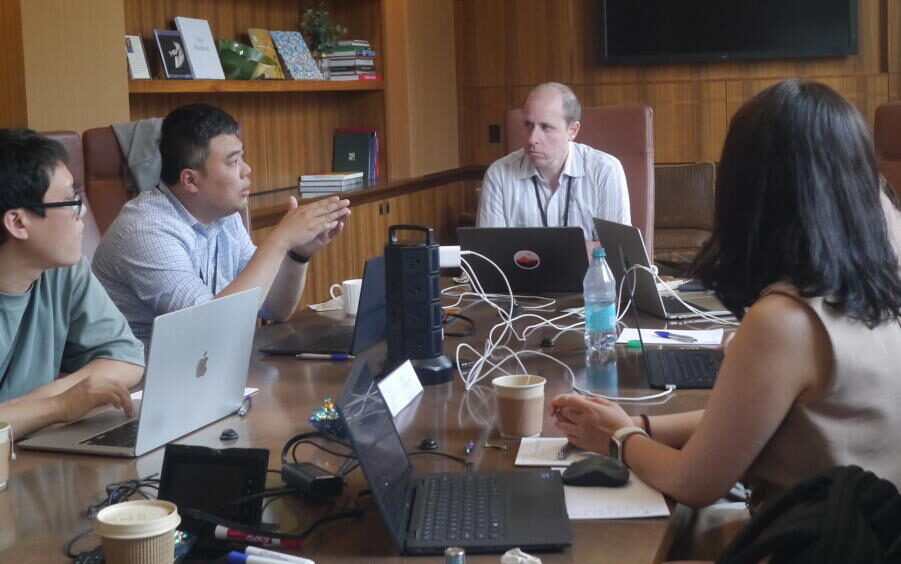
mHTI 2025 Concludes as Recently Published Paper Explores How Interdisciplinary Training Programs Shape The Future of mHealth
The 2025 mHealth Training Institute (mHTI) has officially concluded, bringing together a new cohort of early-career scientists and seasoned mentors for an intensive week of skill-building, collaboration, and innovation. Each year, the NIH-funded mHTI provides a unique space for investigators across disciplines—including computer science, engineering, behavioral and social sciences, and medicine—to learn how to design, implement, and translate cutting-edge mobile health (mHealth) research. Participants engage in hands-on workshops, data challenges, team science exercises, and mentorship sessions that equip them to tackle complex health problems using emerging technologies.
A timely new publication highlights the lasting impact of programs like mHTI in shaping the future of mHealth. In Mapping the mHealth Nexus: A Semantic Analysis of mHealth Scholars’ Research Propensities Following an Interdisciplinary Training Institute the study underscores how interdisciplinary training environments help break down silos, foster collaborative networks, and accelerate the development of scalable digital health solutions. By immersing researchers in a setting that values diversity of expertise and perspective, mHTI builds a foundation for transformative work that bridges technology and health outcomes.
This year’s cohort reflected the breadth of the field—ranging from behavioral scientists developing adaptive interventions, to engineers refining wearable sensing technologies, to clinicians working to integrate digital health tools into patient care. Together, they worked across disciplinary lines to explore how mobile health technologies can better address real-world challenges such as chronic disease management, health equity, and precision interventions. The collaborative spirit cultivated at mHTI continues long after the program, with alumni contributing to leading-edge research, policy discussions, and translational efforts in digital health.
As the paper emphasizes and the conclusion of mHTI 2025 reinforces, interdisciplinary training programs are essential for preparing the next generation of mHealth leaders. By uniting diverse perspectives under a common mission, mHTI exemplifies how immersive training can shape not only the careers of individual researchers but also the trajectory of mobile health science as a whole.
Paper citation
Ren, J., Luo, J., Huang, Y., Shetty, V., & Jeon, M. (2025). Mapping the mHealth Nexus: A Semantic Analysis of mHealth Scholars’ Research Propensities Following an Interdisciplinary Training Institute. Applied Sciences, 15(11), 6252. https://doi.org/10.3390/app15116252








